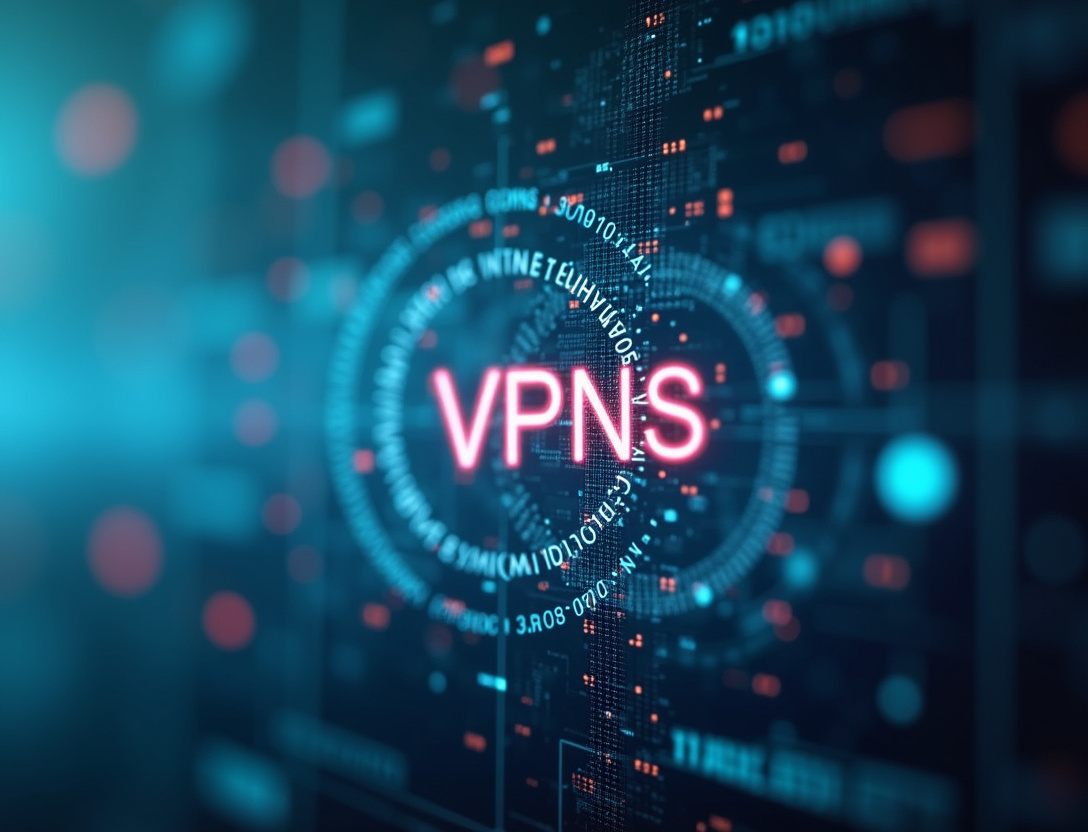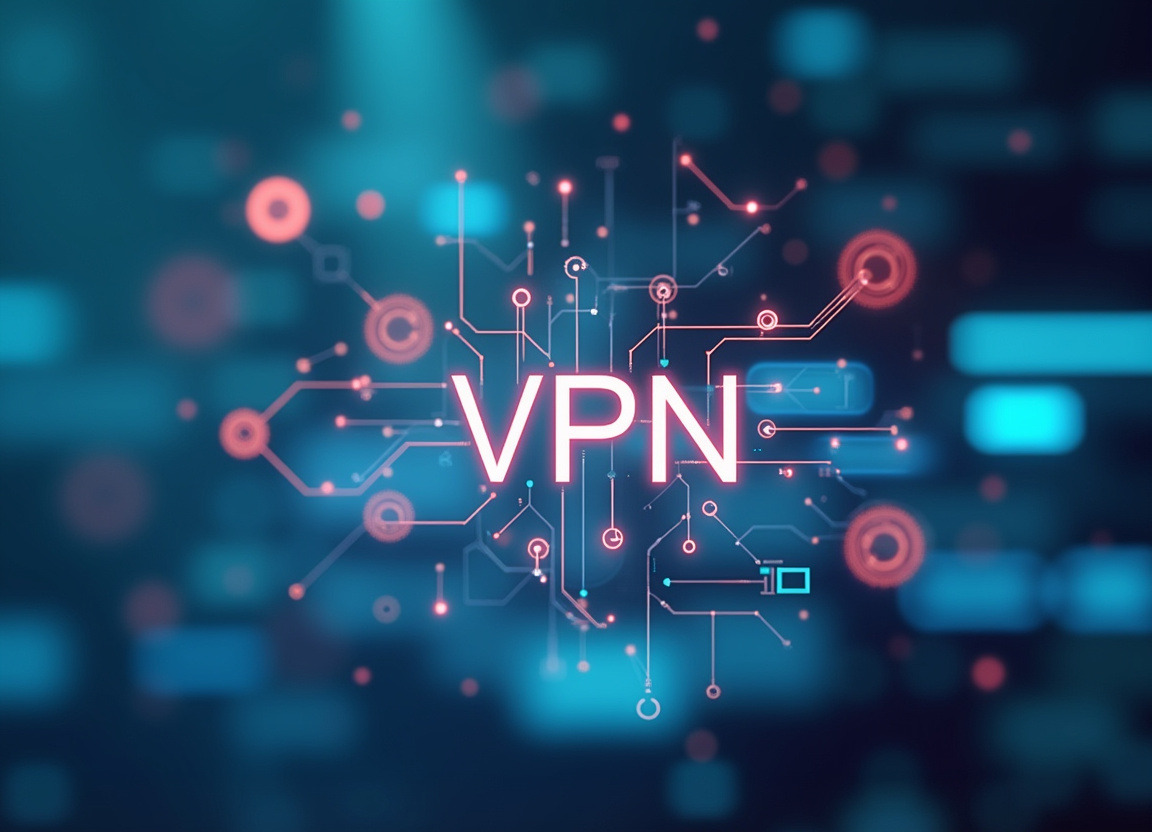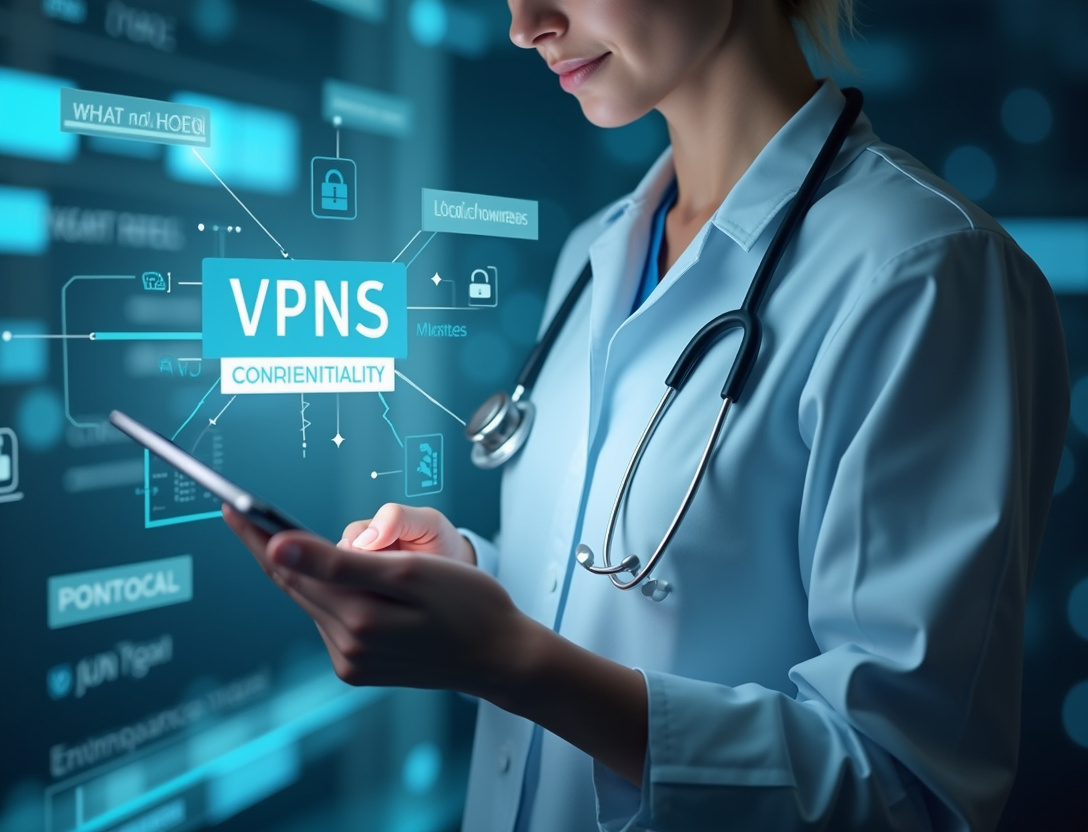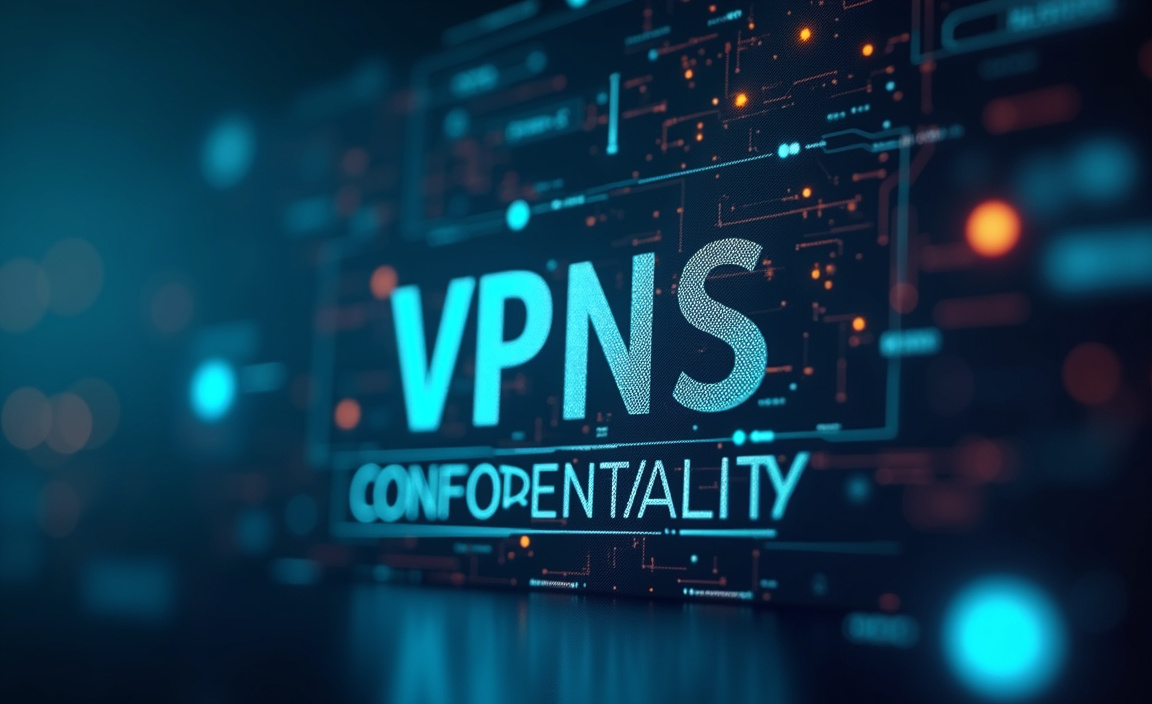VPNs for Biomedical Research: Protecting Study Data

Table of Contents
VPNs for Biomedical Research: Protecting Study Data
In today's interconnected world, biomedical research faces unprecedented challenges in safeguarding sensitive study data. The increasing reliance on digital technologies, global collaborations, and remote data collection methods has created vulnerabilities that can compromise the confidentiality, integrity, and availability of research findings. A robust and well-implemented Virtual Private Network (VPN) solution is no longer a luxury, but a necessity for ensuring the security of biomedical research and maintaining the highest standards of scientific integrity.
This article delves into the critical role of VPNs in protecting valuable study data, exploring the essential features, implementation strategies, and best practices for leveraging this technology in the biomedical research field. We will examine how a properly configured VPN can address specific security concerns, such as unauthorized access, data breaches, and the interception of sensitive information during transmission, while also fostering collaboration and enabling secure remote access for researchers worldwide. Recognizing the unique demands of biomedical research, this discussion will focus on VPN solutions tailored to meet the stringent requirements of the industry, emphasizing data confidentiality, research integrity, and compliance with regulatory standards.
The goal is to provide a comprehensive understanding of how VPNs can contribute to a more secure and reliable research environment, ultimately advancing scientific knowledge and improving patient outcomes. The modern biomedical research landscape is built upon data – vast datasets encompassing patient information, genetic sequences, clinical trial results, and a multitude of other sensitive variables. The integrity and confidentiality of this data are paramount, not only for ethical considerations but also for the validity and reliability of research outcomes.
Any compromise, whether through unauthorized access, data manipulation, or accidental exposure, can have devastating consequences, ranging from the invalidation of research findings to the violation of patient privacy and breaches of regulatory compliance. Therefore, the implementation of robust security measures is not merely a best practice; it is an indispensable requirement for all biomedical research institutions and organizations. Among the various security tools available, Virtual Private Networks (VPNs) stand out as a versatile and effective solution for protecting study data.
By creating a secure, encrypted connection between a researcher's device and the research network, VPNs effectively shield sensitive information from prying eyes, mitigating the risks of unauthorized interception and data breaches. This is particularly critical in situations involving remote access, international collaborations, or the use of public Wi-Fi networks, all of which introduce significant security vulnerabilities. But the benefits of VPNs extend beyond simple data encryption.
A well-designed VPN infrastructure can also facilitate secure data sharing, enforce access control policies, and provide a centralized platform for managing user authentication and authorization. By integrating VPNs into the overall security architecture, biomedical research organizations can create a layered defense that effectively protects study data throughout its lifecycle, from collection and storage to analysis and dissemination. The selection and implementation of a VPN solution for biomedical research require careful consideration of several factors, including the specific security needs of the organization, the regulatory requirements that must be met, and the technical capabilities of the research team.
A thorough risk assessment should be conducted to identify potential vulnerabilities and prioritize the implementation of appropriate security measures. Furthermore, it is essential to choose a VPN provider that understands the unique challenges of biomedical research and offers solutions tailored to meet the stringent requirements of the industry. Consider scenarios where researchers are conducting clinical trials across multiple international sites.
Data from these trials, encompassing patient demographics, treatment responses, and adverse events, must be transmitted securely between the various sites and a central data repository. Without a VPN, this data is vulnerable to interception by malicious actors or government surveillance agencies, potentially compromising patient privacy and research integrity. Similarly, researchers working remotely from home or while traveling often rely on public Wi-Fi networks to access research databases and communicate with colleagues.
These networks are notoriously insecure, making them prime targets for hackers seeking to steal sensitive information. A VPN can provide a secure tunnel through these networks, protecting research data from unauthorized access. Moreover, in today's collaborative research environment, researchers often share data and resources with external partners, such as universities, hospitals, and pharmaceutical companies.
A VPN can provide a secure and controlled environment for these collaborations, ensuring that only authorized individuals have access to sensitive data. By carefully evaluating the security risks and selecting a VPN solution that meets the specific needs of the research organization, biomedical research institutions can significantly enhance their data protection capabilities and maintain the integrity of their research findings. This proactive approach not only safeguards sensitive information but also fosters trust among patients, collaborators, and the broader scientific community.
Enhancing Project Data Protection with VPNs
The cornerstone of any effective *biomedical research VPN* solution is its ability to ensure *confidentiality*. This means protecting sensitive study data from unauthorized access, disclosure, and interception. In the context of biomedical research, confidentiality encompasses a wide range of information, including patient medical records, genetic data, clinical trial results, and proprietary research findings all needing *study data security*.
A VPN achieves confidentiality by creating an encrypted tunnel between a researcher's device and the research network. All data transmitted through this tunnel is scrambled using strong encryption algorithms, making it unreadable to anyone who intercepts it without the proper decryption key. This is particularly important when researchers are accessing sensitive data remotely, using public Wi-Fi networks, or collaborating with colleagues in different locations.
Without a VPN, data transmitted over these connections is vulnerable to eavesdropping and interception by malicious actors. In addition to encryption, a robust VPN solution should also incorporate several other features to enhance confidentiality. These include multi-factor authentication, which requires users to provide multiple forms of identification before gaining access to the network; access control policies, which restrict users' access to only the data and resources they need to perform their jobs; and data loss prevention (DLP) measures, which prevent sensitive data from being copied or transmitted outside the secure network.
The importance of data confidentiality in biomedical research cannot be overstated. Breaches of confidentiality can have devastating consequences, including the violation of patient privacy, the invalidation of research findings, and reputational damage to the research institution. In addition, many regulations, such as HIPAA and GDPR, impose strict requirements for protecting the confidentiality of sensitive personal data.
Failure to comply with these regulations can result in significant fines and penalties. Therefore, implementing a robust VPN solution is not only a best practice; it is a legal and ethical imperative for all biomedical research organizations. Beyond the technical measures implemented by the VPN, policies and procedures play a crucial role in maintaining confidentiality.
These include clear guidelines for handling sensitive data, regular security awareness training for researchers, and incident response plans to address potential security breaches. By combining technical safeguards with sound policies and procedures, biomedical research organizations can create a comprehensive security framework that effectively protects the confidentiality of study data. Consider the scenario of a pharmaceutical company conducting a clinical trial for a new drug.
The trial involves collecting sensitive patient data, including medical history, lab results, and treatment responses. This data is stored in a central database that is accessible to researchers at multiple sites around the world. To protect the confidentiality of this data, the company implements a VPN solution that encrypts all data transmitted between the different sites and the central database.
The VPN also requires multi-factor authentication for all users and restricts access to the data based on their roles and responsibilities. In addition, the company has implemented strict policies and procedures for handling sensitive data, including requirements for data encryption, access control, and disposal. All researchers are required to undergo regular security awareness training to ensure that they understand the importance of *confidentiality* and the steps they need to take to protect patient data and prevent data leaks that can seriously affect *research integrity*.
Furthermore, the company has developed an incident response plan that outlines the steps to be taken in the event of a security breach. This plan includes procedures for containing the breach, notifying affected parties, and restoring data. By implementing a comprehensive VPN solution and sound policies and procedures, the pharmaceutical company can significantly reduce the risk of a data breach and protect the *confidentiality* of patient data; choosing a *VPN for science* is important when dealing with patient's private iformation The consequences of failing to protect patient *confidentiality* can be severe, including financial losses, reputational damage, and legal penalties.
In some cases, a breach of confidentiality can even lead to the compromise of patient safety. Therefore, biomedical research organizations must prioritize the implementation of robust security measures to protect patient data and maintain the highest standards of ethical conduct.
Beyond *confidentiality*, another crucial aspect of VPN security in biomedical research is ensuring *research integrity*. This refers to the accuracy, completeness, and reliability of study data. A compromised dataset, whether through accidental alteration, malicious tampering, or data corruption, can have devastating consequences, leading to flawed research findings, incorrect conclusions, and potentially harmful outcomes for patients need a working *biomedical research VPN*.
A VPN helps to maintain research integrity in several ways. First, by encrypting data in transit, it prevents unauthorized parties from intercepting and modifying study data. This is particularly important when data is being transferred between different research sites or when researchers are accessing data remotely.
Encryption ensures that even if the data is intercepted, it cannot be altered without detection, thus preserving the integrity of the information. Secondly, a VPN can enforce access control policies, limiting who can access and modify sensitive data. By implementing role-based access control, research organizations can ensure that only authorized personnel have access to specific datasets and that they can only perform actions that are consistent with their roles and responsibilities; This will also ensure better *study data security*.
This prevents unauthorized modifications or deletions of data, reducing the risk of accidental or malicious data corruption. Furthermore, a VPN can provide a secure audit trail of all data access and modification activities. By logging all user actions, research organizations can track who accessed which data, when they accessed it, and what changes they made.
This audit trail can be invaluable in identifying and investigating data breaches or other security incidents, as well as in verifying the integrity of the data in the event of a dispute. Maintaining *research integrity* also involves ensuring the accuracy and completeness of data collection processes. A VPN can facilitate secure and reliable data transfer from remote data collection devices or systems, ensuring that data is transmitted without errors or omissions; ensuring the viability of said *biomedical research VPN*.
For example, in clinical trials, data is often collected using electronic data capture (EDC) systems. A VPN can provide a secure connection between the EDC system and the central data repository, ensuring that clinical data is transmitted accurately and completely. To further strengthen *research integrity*, VPNs can be integrated with other security measures, such as intrusion detection systems (IDS) and data loss prevention (DLP) systems.
An IDS can detect and alert administrators to suspicious network activity, such as unauthorized access attempts or data breaches, while a DLP system can prevent sensitive data from being copied or transmitted outside the secure research network. All of these measures are in place to protect the *confidentiality* of the processes. Consider a scenario where a research team publishes a groundbreaking study in a prestigious scientific journal.
However, after publication, it is discovered that the data used in the study had been tampered with, leading to incorrect conclusions. This could have serious implications for the reputation of the research institution and could potentially harm patients if the findings are used to guide clinical practice. A robust VPN solution, combined with other security and data quality control measures, could have prevented this from happening.
By encrypting data in transit, enforcing access control policies, and providing a secure audit trail, the VPN would have made it much more difficult for unauthorized parties to tamper with the data and would have made it easier to detect any data breaches or other security incidents.
VPNs for Services: Securing Online Platforms and Subscriptions
Beyond the core principles of *confidentiality* and *research integrity*, another vital consideration for VPN implementation in biomedical research is compliance with relevant regulatory frameworks. Numerous regulations govern the handling of sensitive data in the biomedical field, each with specific requirements for data security and privacy. Failure to comply with these regulations can result in significant fines, legal penalties, and reputational damage, undermining the credibility of the research and the organization as a whole.
HIPAA (Health Insurance Portability and Accountability Act) in the United States, for example, mandates strict standards for protecting the privacy and security of protected health information (PHI). GDPR (General Data Protection Regulation) in the European Union imposes stringent requirements for the processing of personal data of EU residents, regardless of where the data is processed. Other regulations, such as the Clinical Trial Regulation (CTR) in the EU and various national laws governing data protection and privacy, further complicate the regulatory landscape for biomedical research.
A well-configured *biomedical research VPN* can play a crucial role in achieving and maintaining compliance with these regulations. By encrypting data in transit, a VPN helps to meet the requirements for data security outlined in many regulations. HIPAA, for instance, requires covered entities to implement technical safeguards to protect PHI from unauthorized access, use, or disclosure.
Encryption is a key technical safeguard that can help organizations meet this requirement. Similarly, GDPR mandates that personal data be processed in a manner that ensures appropriate security of the personal data, including protection against unauthorized or unlawful processing and against accidental loss, destruction, or damage. Encryption, facilitated by a VPN, is a recognized method for achieving this level of security.
Furthermore, a VPN can help organizations enforce access control policies, ensuring that only authorized personnel have access to sensitive data. Many regulations require organizations to implement access controls to limit access to personal data to those who have a legitimate need to know. A VPN can facilitate the implementation of role-based access control, ensuring that users only have access to the data and resources they need to perform their jobs.
In addition to technical safeguards, many regulations also require organizations to implement administrative and physical safeguards to protect sensitive data. These safeguards may include policies and procedures for data handling, security awareness training for employees, and physical security measures to protect data centers and other facilities. A well-designed VPN solution can be integrated with these other safeguards to create a comprehensive security framework that effectively addresses the regulatory requirements.
When selecting a *VPN for science*, it is crucial to choose a provider that understands the specific regulatory requirements of the biomedical field and offers solutions that are designed to meet those requirements. The VPN provider should be able to provide documentation and support to help the organization demonstrate compliance with relevant regulations. Consider the scenario of a research organization conducting a clinical trial involving patients in both the United States and the European Union.
The organization must comply with both HIPAA and GDPR, which have different requirements for data protection and privacy making *study data security* a core tenet. By implementing a VPN solution that is designed to meet the requirements of both regulations, the organization can streamline its compliance efforts and ensure that patient data is protected in accordance with the highest standards. The selected VPN should offer features such as data encryption, access control, audit logging, and data loss prevention, all of which can contribute to regulatory compliance.
The Future of VPNs: Enhanced Security, Privacy, and Integration
The successful implementation of a *biomedical research VPN* extends beyond simply selecting and installing the software. Careful planning, configuration, and ongoing management are essential to ensure that the VPN effectively protects study data and meets the specific needs of the research organization. A crucial first step is to conduct a thorough risk assessment to identify potential vulnerabilities in the research environment.
This assessment should consider factors such as the types of data being collected, the locations where data is stored and processed, the individuals who have access to the data, and the potential threats to data security. The risk assessment will help to prioritize the implementation of appropriate security measures and to tailor the VPN configuration to address the specific risks identified. Based on the risk assessment, the organization should develop a detailed security policy that outlines the requirements for data security and privacy when utilizing a *VPN for science*.
This policy should cover topics such as data encryption, access control, authentication, incident response, and data retention. The security policy should be communicated to all researchers and staff who have access to sensitive data, and they should be trained on their responsibilities for protecting data security and *confidentiality*. The VPN should be configured to enforce the security policy and to provide a secure and controlled environment for data access and processing.
This may involve implementing role-based access control, configuring multi-factor authentication, and setting up data loss prevention rules. The VPN should also be integrated with other security systems, such as firewalls, intrusion detection systems, and antivirus software, to create a layered defense against potential threats. Ongoing monitoring and maintenance are essential to ensure that the VPN continues to function effectively and to address any emerging security threats.
The VPN logs should be regularly reviewed to identify any suspicious activity, and security updates should be applied promptly to address any known vulnerabilities. The VPN configuration should also be periodically reviewed to ensure that it remains aligned with the organization's security policy and the evolving threat landscape. In addition to technical measures, it is also important to foster a culture of security awareness among researchers and staff.
Regular security awareness training should be provided to educate them about the importance of data security and privacy, the potential threats to data, and the steps they can take to protect data. This training should cover topics such as password security, phishing awareness, social engineering, and data handling best practices all in order to maximize *study data security*. By fostering a culture of security awareness, the organization can empower researchers and staff to become active participants in protecting data security and preventing data breaches affecting *research integrity*.
Consider a scenario where a research organization implements a VPN but fails to properly configure it or to provide adequate training to its staff. As a result, researchers may be unaware of the importance of using the VPN when accessing sensitive data remotely, or they may use weak passwords that are easily compromised. This could lead to a data breach, even though the organization has invested in a VPN solution.
A well-planned and properly implemented VPN, combined with ongoing monitoring, maintenance, and security awareness training, can significantly enhance the security of biomedical research data and protect the *confidentiality*, integrity, and availability of research findings. It's about having a comprehensive plan. By taking a proactive approach to data security, research organizations can build trust with patients, collaborators, and the broader scientific community, while also complying with relevant regulatory requirements.
Stay Updated
Get the latest VPN news, tips, and exclusive deals to your inbox.




